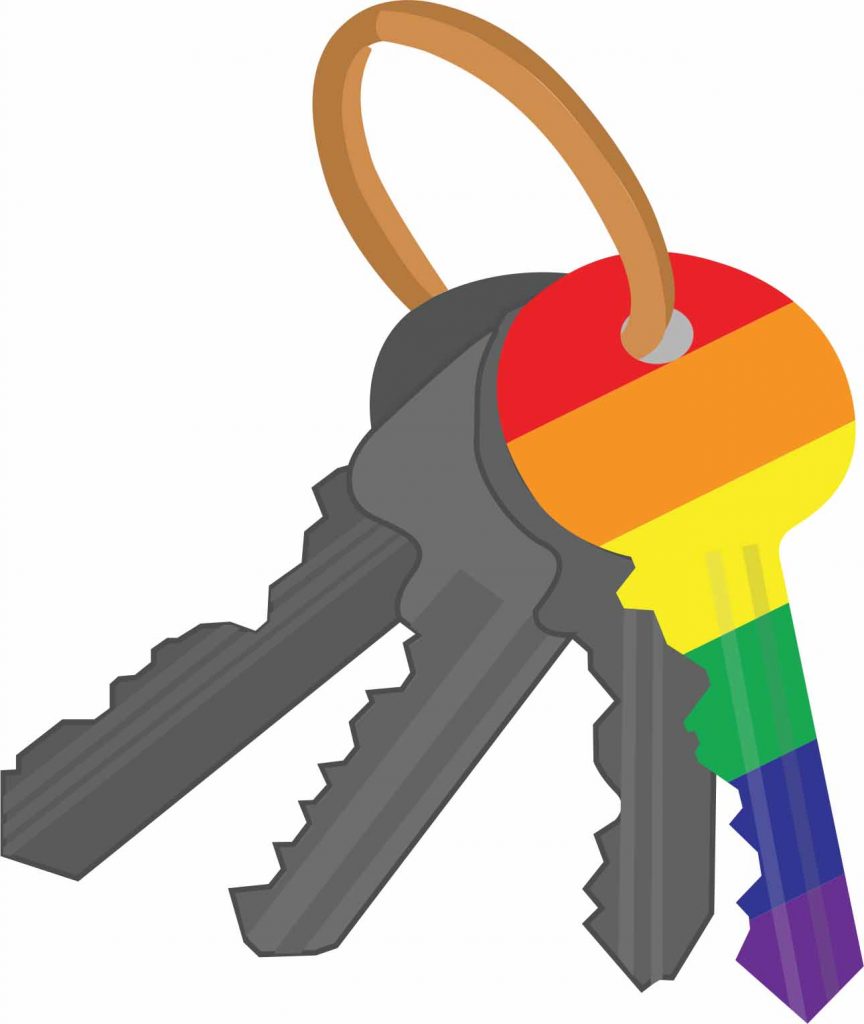
Regan Willis, 24, graduated as president of the UM Pride Network in 2018 after five years of battling intermittent homelessness. Abandoned by his parents in the summer of 2014 for being transgender and in a relationship, he was left to fend for himself, taking a year off to search for a home and a way to pay for school.
He survived by staying with friends, but homelessness severely impacted his mental health. He couldn’t focus on school because he was looking for work, food and a place to live. He graduated with a 2.1 GPA, and he took pride in it.
“Most people, you look at me on paper and you think I’m a failure,” Willis said. “But, I’ve worked harder than I ever thought I would have to, to get that degree. And I’m more proud than some people who graduated with a 4.0.”
After finishing school and speaking at the Lavender Graduation, a ceremony that honors LGBTQ students’ achievements and honors, Willis said he felt like he finally overcame his struggles. But his homelessness didn’t end with college.
“It kind of sticks around and continues to haunt you, in a sense,” he said.
In the summer of 2018, he found himself homeless again after the end of a relationship. He could only obtain lower-paying jobs and internships because of poor grades and lack of experience.
Jaime Harker of the Sarah Isom Center said that homelessness is an “invisible challenge” that the LGBTQ community faces.
“You also hear a lot of stories about students at the university when they come out, their parents ‘ghost’ them,” Harker said. “That is, they stop paying their tuition, take the car. All of a sudden, they can’t manage their bills, and it can be really sudden.”
Not only should the issue be brought to light, Harker said, but the community also needs to help students whose parents physically and financially abandon them.
“It’s wrong that the community’s not supporting these kids, and we need to think about how, as a community, to build those resources,” Harker said.
She hopes to be working with others to eventually build an emergency fund for LGBTQ students in trouble to help with tuition or medical bills and a short-term network of people who would temporarily open up their homes for those in need.
Harker said that there are more LGBTQ people in the homeless population than in the rest of the population.
According to the Center for American Progress, about 40% of homeless youth identify as LGBTQ. In 2017, the Human Rights Campaign reported that LGBTQ youth have a 120% higher risk of homelessness compared to their straight and cisgender counterparts.
The Rev. Gail Stratton was involved with the North Mississippi chapter of PFLAG, a national organization for families and LGBTQ allies, from 2004 until 2017. She reiterated that being LGBTQ compounds the other factors that cause homelessness, such as a lack of affordable housing. There are no legal protections for queer people being discriminated against in housing, she said.
“We need to rediscover our common humanity and look out for each other in as many ways as we possibly can,” Stratton said.
Willis acknowledges the importance of organizations like OUTMemphis, which is working to establish a queer-friendly emergency center scheduled for opening this winter, but also emphasized how shelters exist mostly in cities, being inaccessible to people living in rural areas.
The nearest shelters to Oxford are the Salvation Army in Tupelo and the Memphis Union Mission. Although the OUTMemphis center was not open then, Willis considered traveling to Memphis to search for a homeless shelter but was hesitant because of the distance.
“It doesn’t really seem like a resource when it’s that far away,” Willis said.
Because of scarcity in organized homelessness intervention, Willis said that people in rural areas are “left to rely on (an) underground queer network.”
He was able to get back on his feet in 2018 with the help of Harker and other members of the community whom he connected with through the UM Pride Network, like former UM Pride Network Vice President Brenna Paola.
Willis was embarrassed to tell his story for a long time, only comfortable now because he has a stable home and job in Salt Lake City. He said that there is a shame associated with homelessness that is ingrained in our culture.
Willis also noted that many people didn’t understand his homelessness and unemployment from the perspective of his trans identity, unaware of the added layer of difficulty transgender people experience in their personal and professional lives.
He said he was ashamed to reach out for help initially because there’s a fear of leaning on others while being trans, he said. He added that he feels that among the small percentage of homeless shelters, there are even fewer that are are trans-inclusive.
Willis said he hopes to one day get involved with organizations working to combat LGBTQ homelessness.
“I’m still trying to get my own feet on the ground, you know?” he said. “Kind of get myself in the right place, so I can help others again.”
This story has been submitted to The Daily Mississippian from a journalism class.
















